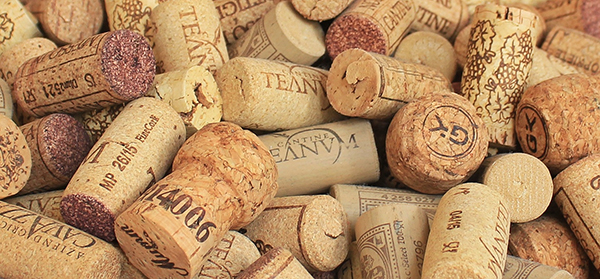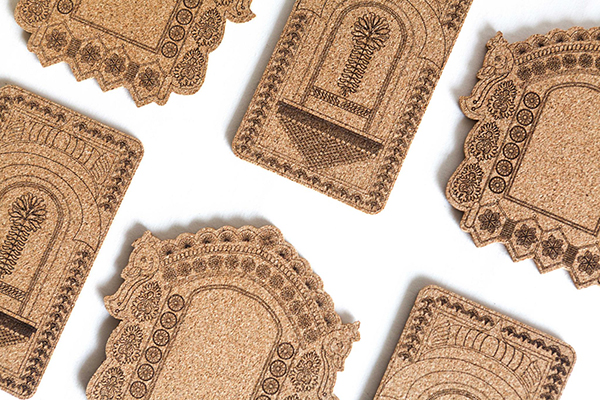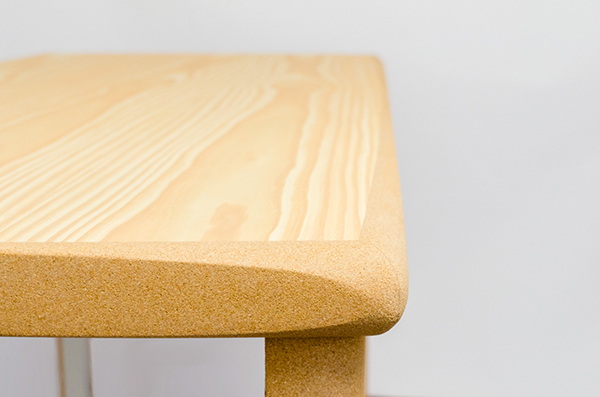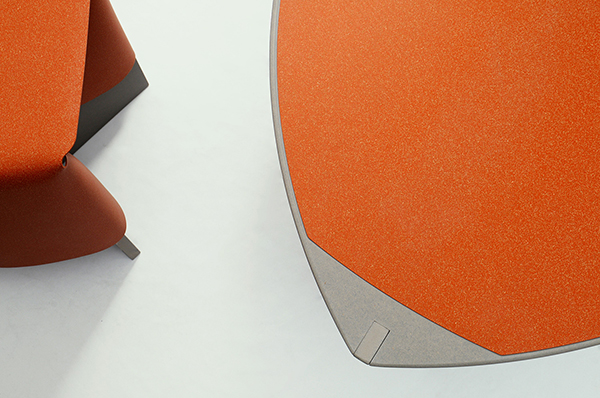
London Design Festival highlighted a number of designers and makers who are breaking new ground with mindfully sourced materials and more sustainable production. One of the key trends I noticed were the innovative approaches to cork in contemporary furniture and homeware design.
Most of the world’s cork is grown in Portugal and Spain, but it can also be found in Italy, France and parts of Northern Africa. Cork is the bark surrounding the cork oak tree, which gets harvested when the tree is 25 years old.
Cork is considered sustainable because only the bark is extracted. This means the tree goes on living and producing more bark, which is subsequently harvested every 9 years, potentially for 200 years or more. Cork trees also grow on mixed-plant woodland, don’t require much water and forests provide a rich habitat that allows flowers, insects and animals to thrive.
With this in mind, it’s great to see that with an injection of creativity and craftsmanship, this material can go a great deal further than your bottle of bubbly. Read on to see five great brands doing wonderful things with cork…
Swedish Ninja
Swedish Ninja, showcased at the London Design Fair, was founded by designer Maria Gustavsson and comprises a collection of her own designs, alongside other creatives. The Notebook bench and Notebook cabinet by Maria are both made from cork, metal and MDF. She demonstrates a new approach to cork by mixing it with coloured filings, giving it a fun and contemporary twist.

◉◎
Outlin’d
Jhunjhun Jain studied 3D design in Singapore and the UK. This month, she showcased her cork collection ‘Outlin’d’ at 100% Design, which she describes as ‘cork pieces narrating tales of Indian heritage’. It includes drink presentation trays, placemats and coasters, but the range even extends to cork handbags.

The engraved designs depict Jharokha – traditional enclosed balconies typically found in the architecture of Rajhasthan.
◉◎
Trinta Por Uma Linha
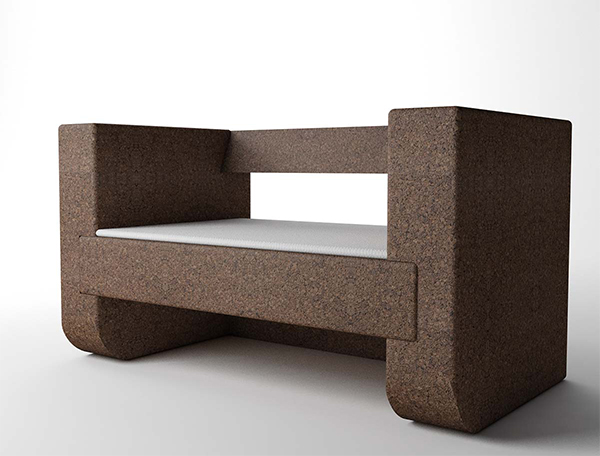
Trinta Por Uma Linha ‘Thirty Line Design’ is a Portuguese furniture brand using Portuguese materials. At 100% Design, they showcased a selection of cork products. The seat above is playfully named ‘Vira o Disco e Toca o Mesmo’, meaning ‘Turn Around and Sit Again’. It comes in two sizes and is waterproof so it can be used outside.
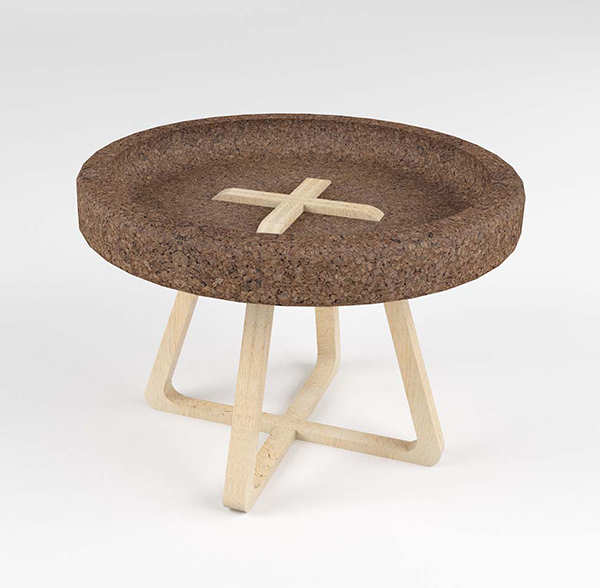
This coffee table made from cork and pine is called ‘Segurar a Vela’ – ‘Hold the Candle’ and can also be used outside. Both the seating and coffee table are made from black agglomerate cork which is burned to give it its dark colour.
◉◎
Cuco Design
Another designer making the most of local materials is Cuco. Products have been developed by a team of architects which are handmade in Porto by skilled artisans. The smooth-edged ‘Light’ table above is inspired by the lightness of the cork material, which is here combined with parasol pine natural wood.
For their ‘Nest’ collection, they have used a material composed of rubber and recycled cork particles called rubbercork. Not typically used in the furniture industry, it has been applied here for its flexible qualities, almost resembling leather to touch. The composite can be mixed in different proportions and colours which lends to its brown or red appearance.

Designer Ricardo Prata says, ‘When I found this material I decided to use it as a replacement for leather due to its natural look and feel. The advantages are its resistance, flexibility and water-proofing properties.’

The ‘Nest’ collection is available in different colours combinations. The rubbercork is also combined with Valchromat which is a recyclable material, similar to MDF but the wood is coloured all the way through using organic dyes.
◉◎
Migaloo Home

Migaloo is a Polish company headed up by Monika Blaszkowska and Michal Grzesiak. Their furniture and homeware is manufactured locally in Poland and draws inspiration from nature. Their unique take on cork is a material they have developed in-house called Migaloo Rock made from cork and resin. The Azure Table above is made with a lovely turquoise resin which makes a for a smooth touchable surface.
◉◎
You can see more on green design at London Design Festival 2017 in this post on Pentatonic

